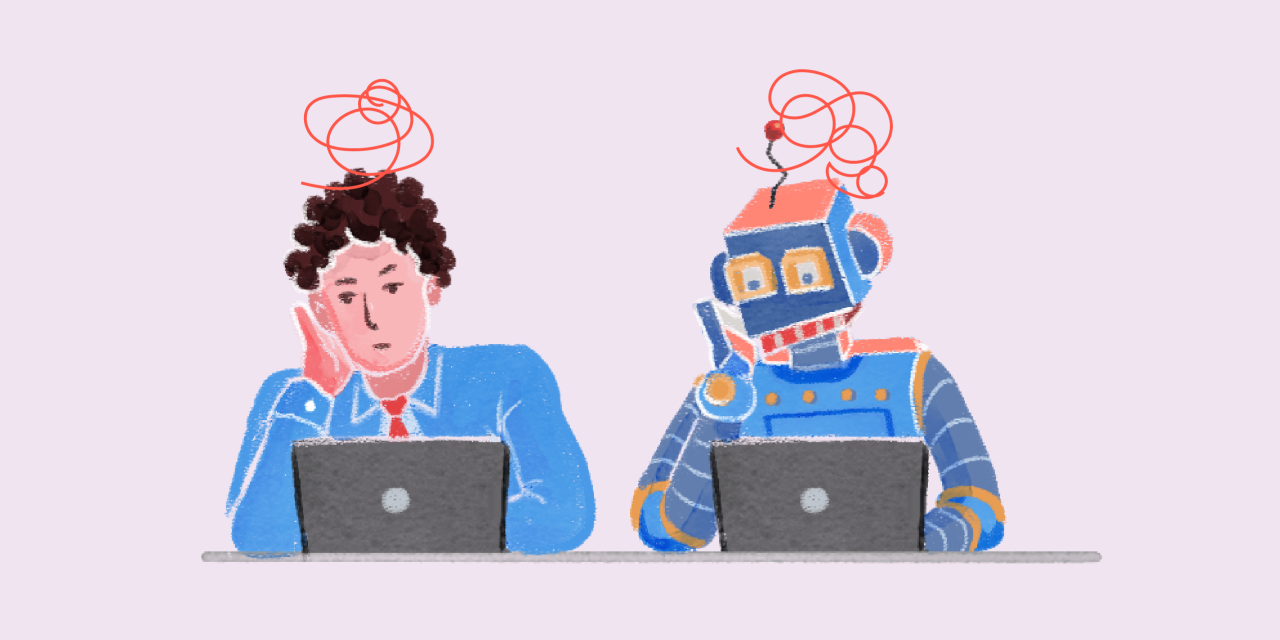Job seekers are relying too much on AI, say HR leaders

More people are plotting their next career move with the aid of generative AI — and more job seekers are getting scammed because of the tech.
In a recent report on the most common remote job scams, career service FlexJobs placed AI-generated job postings right at the top, noting that the technology has created whole new avenues for fraud even as it has made it easier than ever to land that next job.
Using AI tools like ChatGPT “can be incredibly beneficial in the job search process, but there are definitely pitfalls you want to avoid and limitations you should be aware of before using them to support your search,” said FlexJobs career expert Keith Spencer. One of the hottest scams uses AI to create fake job postings and company profiles or websites that collect money from applicants and steal their most sensitive information.
The bottom line is, avoid overreliance on AI when searching for a job, according to Spencer, echoing many HR leaders. While it can be helpful to have such tools analyze a job description or suggest keywords and phrases to use in a resume, for example, using a CV written completely by AI is a no-no. “The tool will lack your unique voice and first-hand perspective, meaning that the style and tone of writing won’t be reflective of your own and the content it includes could be factually inaccurate or highly exaggerated,” Spencer explained.
And while AI can be a good guide for writing a cover letter, samples should never be merely copied and pasted, as the ideal cover letter should convey one’s own ideas and personality and provide information in context of the job.
AI tech can also be used to suggest sample interview questions and review potential responses to help you prepare. But again, don’t rely solely on AI-scripted responses that might be too rigid and lack the ability to be adapted to unexpected questions. “Overall, generative AI tools can make great job search assistants, but you shouldn’t count on them to do all the work for you,” Spencer added.
“Just like any other use for generative AI, it should play the supporting role in your job search workflow rather than playing the lead,” said Hannah Clark, spokesperson for The Product Manager, a community for digital product leaders.
While tools like ChatGPT can help someone screen job postings they’re qualified for, help generate resume templates and double-check that a resume is ATS-friendly [applicant tracking system], trusting the tech to generate entire resumes or cover letters can be sticky. “While the job hunt process can be exhausting, saving time should never come at the expense of transparency with prospective employers,” Clark said.
While scores of surveys have focused on our fear of AI taking our jobs, most HR leaders agree that it can, in reality, serve more as a helpmate in one’s career success. “Every generation has a type of role that has no longer been needed because technologies have replaced those roles, but it’s also a positive, where you have the opportunity to learn this technology to upskill yourself to be successful,” said Rick Hammell, founder and CEO of HCM and payments platform Helios.
Using AI tools like ChatGPT in a job search is no different than using a career coach or resume consultant in the past, according to Steve Knox, vp of global talent acquisition at HR software and services provider Dayforce. “It can be a great tool for writing a first draft of a resume or cover letter or reviewing and editing an existing one; it can even level the playing field for candidates who possess the technical skills for a role but lack the writing and communication skills to make their application stand out,” he said.
In a world where many companies are using AI to sort through applications, AI tools can help applicants mirror keywords, skills and experiences required in a job description, to get a resume through the initial screening. But it’s important to remember that AI is just the first step in the process; candidates should be reviewing the tool’s work to ensure that the skills, experiences and accomplishments they present are accurate, Knox explained.
While AI-driven chatbots can be useful for candidates during interview preparation to help practice common interview questions and provide a detailed overview of a company to help in researching it, make sure you have the most accurate information available, he advised.
“It is important,” as Knox put it, “to double-check ChatGPT’s work.”
